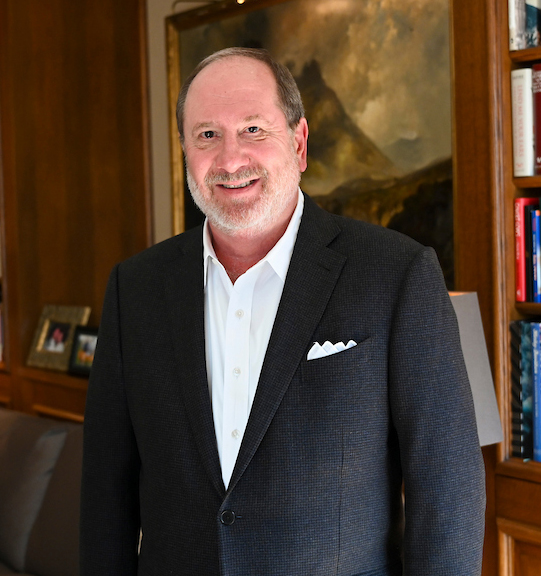
“It’s more important than ever for leaders to respond rapidly to the things going on
with their teams. But also, always deliver on what you say you’re going to deliver,
and when.”
The Harbert College is dedicated to partnering with companies and alumni to engage
industry and improve business
practice.
Respond rapidly and deliver on your promises. Be intentional. Be transparent. And
by all means, communicate. Those are just a few means of building employee trust within
an organization working from a virtual setting.
Dr. Michael Wesson, Chair of the Harbert College Department of Management, and Bert Bean, CEO at Insight Global, offered these pointers and more in the webinar,
“Effectively Leading Virtual Teams,” hosted by the college on Wednesday, October 14.
The webinar, part of the college’s “Reshaping Business in 2020” series, can be viewed here.
 |
Dr. Michael Wesson, Chair, Department of Management, Harbert College of Business
|
“Those frustrated with leading virtual teams … you need to know you're not alone,”
said Wesson, whose research expertise includes leadership and organizational justice.
“The research that's out there is very clear that the reality is -- it's harder to
lead teams virtually than it is to lead teams under normal circumstances. It's important
for leaders to be very intentional with their actions and their behaviors, because
the things that are important, and the leading normal teams, become magnified exponentially
with virtual teams. If you're not very cognizant, not focused and not paying attention
to overcoming some of those things, it's going to be a harder to do it effectively.
“When we’re talking about trust – when we’re all together – a leader’s got great ability
just to walk around and talk to people and try to build that camaraderie. That’s harder
to do when you’re trying to do it over a computer setting. At the end of the day,
there are three things that we know about virtual teams. Virtual teams walk in the
door with less levels of trust, less levels of cohesion, and less ability to coordinate
with one another. There are feelings of isolation and it’s much easier to feel disengaged
when you’re part of a virtual team and then there are issues of communication.
“That’s why it’s more important than ever for leaders to respond rapidly to the things
going on with their teams. But also, always deliver on what you say you’re going to
deliver, and when.”
Bean, who climbed the ranks at Insight Global from recruiter in 2005 to CEO in 2018,
said challenges can be necessary for leadership growth. “Anybody that’s in management
now, or is thinking about leadership … you want a recession. You want a challenge,”
he said.
“Because any leader that’s worth their salt wants to know, when the wolf is at the
door, how am I going to respond, right? How am I going to step up and lead? When things
aren’t going well, we step up and lead. One of the things that is necessary is to
be able to pivot and adapt to different market forces.”
 |
Bert Bean, CEO, Insight Global
|
The market force in play today, of course, is COVID-19 and social distancing/working
remotely that often comes with that. At Insight Global, less than five percent of
its employees work from the office, Bean said.
“A lot of people are starting to think, ‘how do you change as a leader to manage everything
virtually’?” Bean added. “I pushed back on that to say, ‘well, no, actually this demands
you to be a group leader now.’ This demands that you be really intentional with your
leadership. I have been a lot more focused on how to communicate. I have been a lot
more focused on the language that I use. I have been a lot more focused on being transparent
and letting people know what the plan is.
“If we're going to make it out of this thing, we need everybody to run in the same
direction. Everybody needs to know what the plan is. Everybody needs to not just know
what the plan is, but to really be inspired in order to want to show up and to participate
in that plan. We do that through storytelling. We do that through recognizing people.
What are we trying to do? How are we going to get there? And then how are we going
to try to inspire people to, to join our cause?”
The Reshaping Business in 2020 webinar series continues on Wednesday, October 21,
at 11 a.m., as “Marketing, Sales, and the Future” will be presented by the Harbert
College Department of Marketing. What makes some companies win vs. lose? Emory Serviss, Program Champion for the Harbert College Department of Marketing, Bonnie Hensler
’92, Vice President/General Manager for Consumer Payments at Change Healthcare, and
Kyle Marchuk ’15, Account Executive at Salesforce, will answer that and more during
this webinar.


 Degrees & Programs
Degrees & Programs
 Faculty & Staff
Faculty & Staff
 Career Development
Career Development
 Recruiters & Industry
Recruiters & Industry






